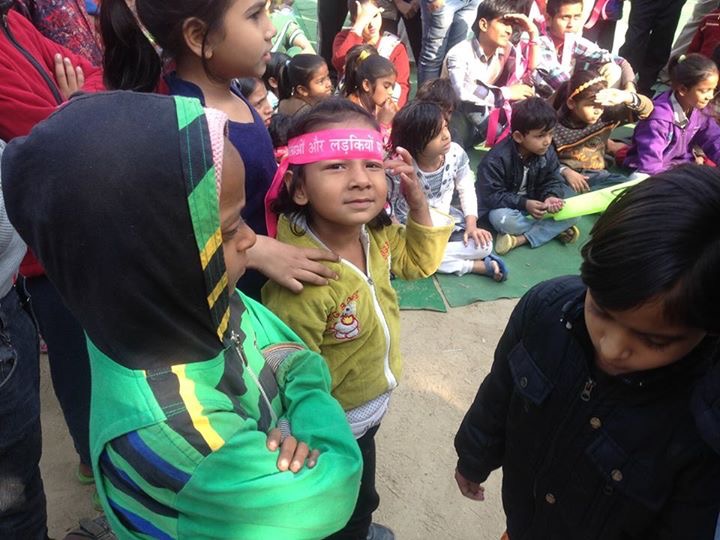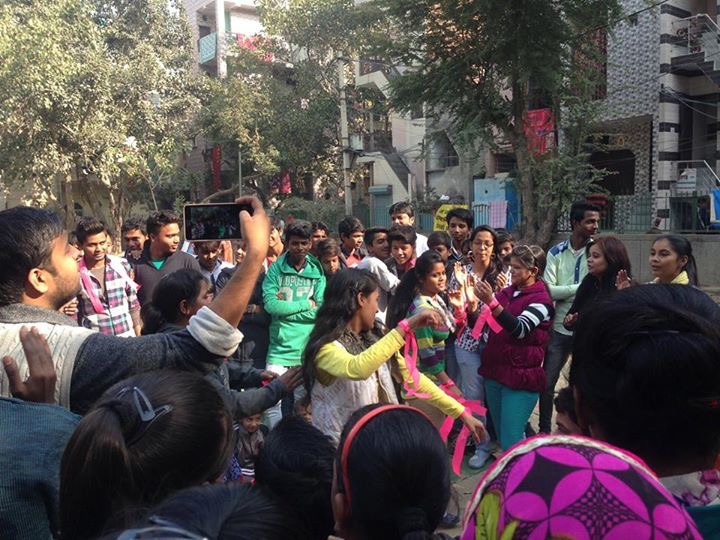December 18, 2015
Azad Foundation organized a One Billion Rising (OBR) event in Jahangirpuri, a low-income area of Delhi, on December 17, 2015. Azad Foundation does extensive work with and for women, including a program that trains resource-poor women in Delhi, Kolkata, Jaipur and Indore as taxi drivers. Only women can order these taxis, although men can travel in them if they are with women companions. This particular event sought to raise Jahngirpuri residents’ consciousness about discrimination against girls and all forms of violence against women.
First, musicians played instruments and sang songs exploring issues of discrimination and violence in a central location in a neighborhood in Jahangirpuri. Many local residents came out of their homes when the performance began, and sang along throughout. Azad Foundation’s taxi driver trainees danced to several of the songs and OBR materials were distributed to the audience. This performance created a festive atmosphere that was conducive for education on issues of gender-based discrimination.
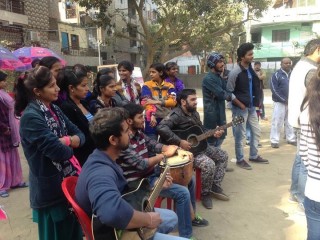
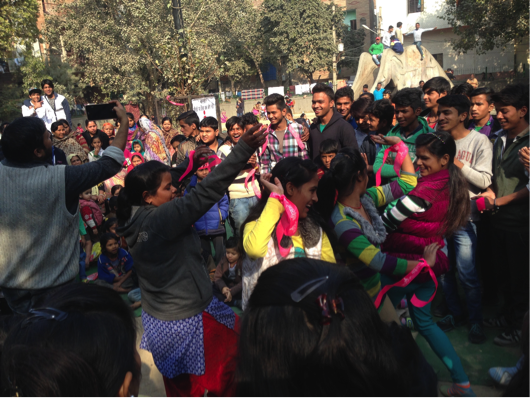
More than 20 street theatre actresses and actors from a well-know theatre group – ASMITA – then began their performance. They mobilized the community by walking around the neighborhood playing drums and calling-out to residents to come watch the play. An energetic performance that discussed discrimination against girls was held. One key storyline in the play was that of a young girl who wanted to go to school but was prevented from doing so by her father who wished to save the family’s money for her dowry. The suffering that this girl endured and the negative impact of dowry on families and communities were explored.
After the play, an Azad Foundation taxi driver trainee shared her own personal story with the audience. Her personal testimony, of the violence she endured at the hands of her parents-in-law and husband, brought tears to the eyes of many people in the audience. The audience was invited to ask questions. One eight-year-old girl approached me and said: “Ma’am, can you please speak to my mother. Can you please tell her I want to go to school?”
The taxi driver trainees, theatre actresses and actors, Azad Foundation staff members, and others then held a rally. We walked from one neighborhood to another chanting slogans, carrying placards, and passing out OBR materials to onlookers. Upon arriving in the next neighborhood, the theatre actresses and actors again mobilized the community for another play.
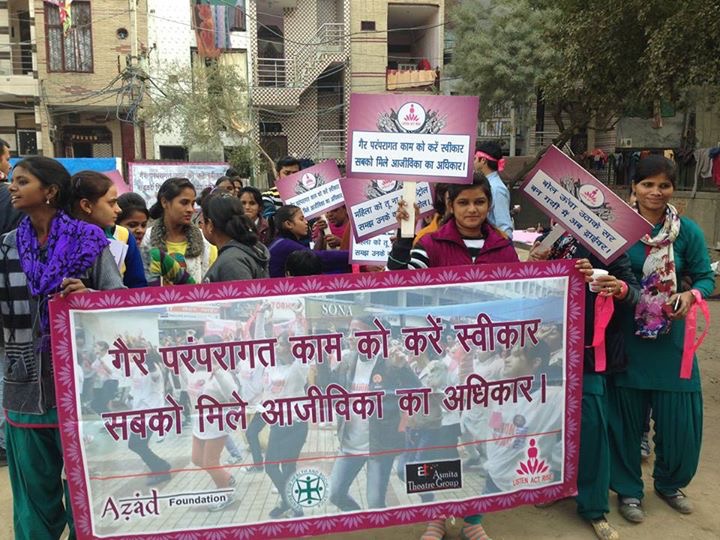
In this photograph, taxi driver trainees are holding a banner that says: Accept unconventional forms of work. Everyone has a right to a livelihood. That these women are learning to drive taxis is unconventional as most taxi drivers in Delhi are men.
The next play focused on violence against women and girls, with a focus on crimes that are common in the area. The actors and actresses explored the negative consequences of leering, stalking, acid throwing, child sexual abuse, and other forms of violence. A passionate woman, who was very effective in connecting with the audience, narrated the play. Throughout the performance, she would ask the audience questions such as: “What do you think of his actions?” or “Does this happen here?” The audience – consisting of girls, boys, young women, young men, women and men – was enthralled by the performance. Young men were heard telling there friends to never leer at women again and women were heard telling their friends that this was a very important message.
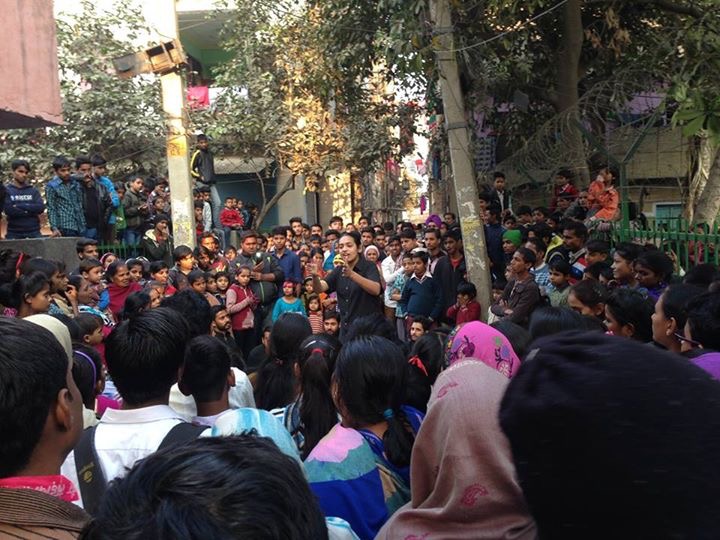
This event was hugely successful. Evidence demonstrates that activities such as these, often referred to as entertainment education as they are used to both entertain and educate, can be extremely effective. They can create knowledge and awareness, and over time, shift attitudes, help in the formation of positive social norms, and even transform behavior.
